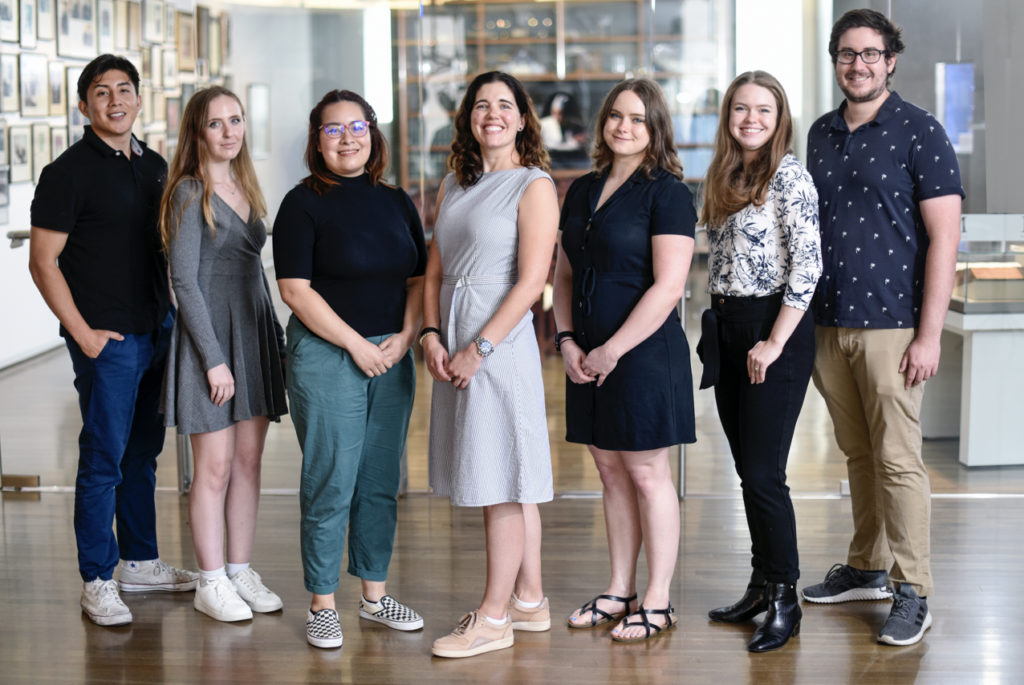
Baylor Research Advocates for Student Scientists (BRASS) supports worm research that sheds light on human neurological issues
At first glance, it might not be obvious that humans and worms share any biological traits. However, worms known as C. elegans learn and remember using the same molecules as humans and thus are an ideal model to test what genes control memory.
Recent research conducted by a team of graduate students in the lab of Rachel N. Arey, Ph.D., assistant professor in the Department of Molecular and Cellular Biology, revealed a compelling link between mutations in Ybx genes, memory and neurological disorders.
“There is nothing quite like seeing crazy experiments work,” said Ashley Hayden Monahan, Ph.D. candidate in neuroscience at Baylor College of Medicine, who led the project. “This was truly a ‘Hail Mary’ experiment.”
With funding from Baylor Research Advocates for Student Scientists (BRASS), Hayden Monahan and a team of researchers, including a BRASS alumnus Dr. Hsiao Tuan-Chao, recently completed an investigation to test whether a Ybx gene mutation they found in four human patients with severe neurological issues — mainly intellectual disability and seizures — would cause similar problems in worms.
The experiment’s results were striking. Worms with the human Ybx gene mutation exhibited impaired memory, mirroring the cognitive challenges faced by human patients. The discovery suggests that the Ybx gene mutations may be linked to the patients’ severe neurological issues.
“This is the first time anyone has shown that the Ybx genes are involved in anything neurological, and we are hoping to learn more about these genes and what they are doing in the future,” Hayden Monahan said. “In the long run, we want to help patients and their families who have likely never had any answers about their neurological issues find closure.”
All the experiments modeling patient mutations were funded by BRASS, a volunteer organization founded in 1995 that supports the Graduate School of Biomedical Sciences at Baylor College of Medicine.
“It is remarkably gratifying to see these results and to know our support is leading to patients having answers,” said Elsie Eckert, BRASS President and co-founder.
To learn more about BRASS, or to make a gift to support the program, visit give.bcm.edu/get-involved/brass


